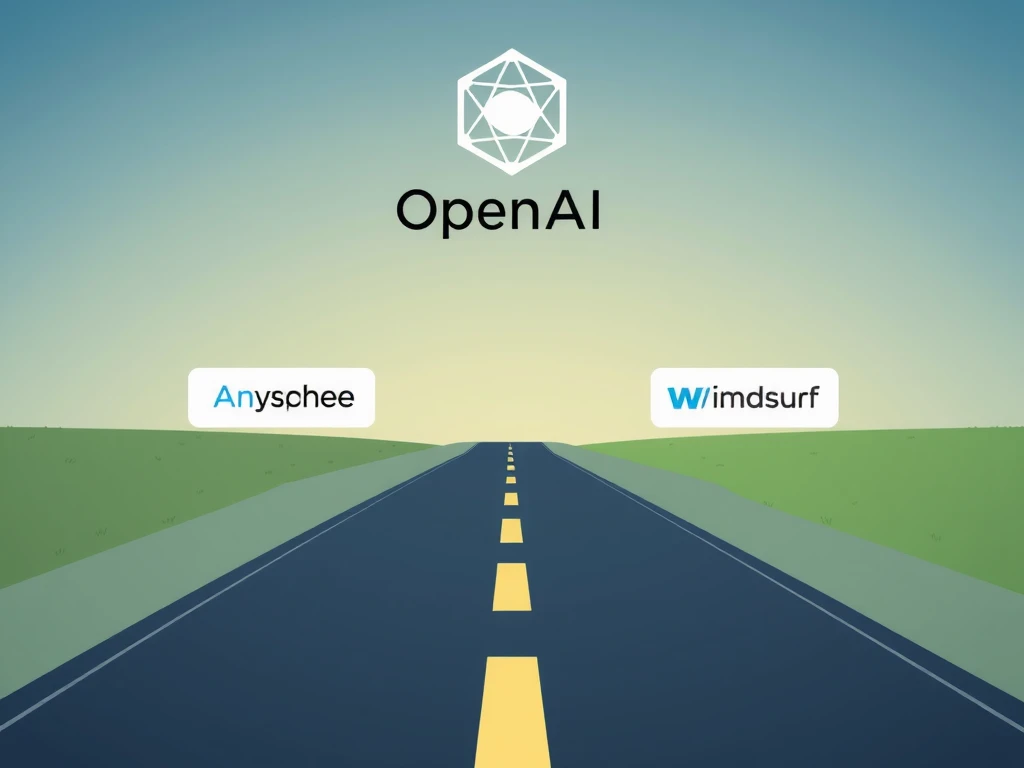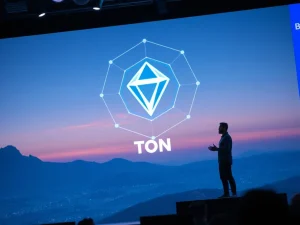Strategic AI Moves: OpenAI’s $3 Billion WindSurf Acquisition Plan Revealed After Anysphere Deal Stalled

In a fascinating turn of events in the rapidly evolving world of artificial intelligence, reports have surfaced revealing OpenAI’s ambitious pursuit of WindSurf, an AI coding assistant tool, following a previously unsuccessful attempt to acquire its competitor, Anysphere. This strategic shift highlights OpenAI’s aggressive expansion in the AI coding space and signals a significant investment in tools designed to empower users, even those without deep programming expertise, to harness the power of code. Let’s delve into the details of this intriguing development and explore what it means for the future of AI and coding.
Why is OpenAI Eyeing an AI Coding Assistant Acquisition?
OpenAI’s interest in acquiring an AI coding assistant company like WindSurf or Anysphere underscores the growing importance of these tools in the tech landscape. These platforms, exemplified by WindSurf and Cursor, are revolutionizing how individuals interact with code. They offer a user-friendly approach, allowing users to “vibe code” – essentially, generate functional code through natural language prompts, bridging the gap for those who lack extensive programming knowledge.
Here’s why this market is so attractive and why OpenAI is making such a bold move:
- Democratizing Coding: AI coding assistants are making coding more accessible to a broader audience. This aligns with the broader trend of democratizing technology and empowering individuals with powerful tools.
- Boosting Developer Productivity: For experienced programmers, these tools can significantly enhance productivity by automating repetitive tasks and suggesting code snippets, freeing up developers to focus on more complex problem-solving.
- Expanding AI’s Reach: By integrating an AI coding assistant into its suite of offerings, OpenAI can further solidify its position as a leader in the AI space, expanding its reach beyond language models and into practical development tools.
- Strategic Market Positioning: Acquiring a company like WindSurf could give OpenAI a competitive edge in the burgeoning market for AI-powered development tools, especially as competition intensifies from other AI giants and open-source initiatives.
The Anysphere Deal That Wasn’t: A Missed Opportunity?
Before setting its sights on WindSurf, OpenAI reportedly engaged in discussions to acquire Anysphere, the creators of the Cursor AI coding assistant. According to CNBC reports, these talks occurred in both 2024 and 2025 but ultimately stalled, failing to result in a successful acquisition. While the exact reasons for the breakdown in negotiations remain undisclosed, this initial interest in Anysphere clearly indicates OpenAI’s strategic intent to enter the AI coding assistant market. The fact that OpenAI approached Anysphere not once, but twice, suggests a strong initial conviction in the value of their technology.
WindSurf Acquisition: A $3 Billion Power Play
Undeterred by the failed Anysphere deal, OpenAI pivoted to WindSurf, reportedly prepared to invest a staggering $3 billion to bring the company under its umbrella. This potential acquisition would mark OpenAI’s largest corporate purchase to date, signaling the company’s serious commitment to the AI coding assistant sector. The $3 billion figure underscores the perceived value of WindSurf and the strategic importance OpenAI places on securing a foothold in this market. Such a significant investment highlights the immense potential OpenAI sees in AI-driven coding tools and their role in the future of software development.
The Rise of DeepSeek R1 and the Open-Source AI Challenge
The backdrop to OpenAI’s acquisition ambitions is the emergence of powerful, cost-effective AI models like DeepSeek R1. Released in January 2025, DeepSeek R1 reportedly challenged conventional wisdom in the AI world by achieving comparable performance to leading models at a fraction of the training cost. This development has rattled the industry, questioning the necessity of massive computing power and the billions invested by major US AI players.
Dr. Ala Shaabana, co-founder of the OpenTensor Foundation, highlighted the significance of DeepSeek’s emergence, stating that it solidifies open-source AI as a legitimate and powerful alternative to centralized AI systems. Shaabana emphasized that the lower costs associated with open-source models demonstrate that achieving high-performance AI does not necessarily require exorbitant investments. This trend poses both a challenge and an opportunity for companies like OpenAI, pushing them to innovate and potentially consider open-source strategies alongside their proprietary models.
OpenAI’s Financial Trajectory: Profitability on the Horizon?
OpenAI is projecting substantial revenue growth, anticipating a tripling of revenue in 2025 to approximately $12.7 billion. This revenue is expected to be driven by paid subscriptions to its leading AI models, catering to both individual users and businesses. The company reached a milestone of over 1 million premium business users in September 2024, demonstrating strong market adoption of its AI offerings.
However, despite this impressive revenue growth, OpenAI CEO Sam Altman has indicated that profitability might not be achieved until 2029. Altman estimates that OpenAI needs to reach a staggering $125 billion in revenue to offset its capital-intensive operations. While acknowledging the dramatic decrease in AI development costs – a tenfold reduction every 12 months – the path to profitability for large-scale AI developers remains complex, particularly amidst competition from more agile, open-source alternatives.
Conclusion: Strategic Acquisition and the Future of AI Coding
OpenAI’s pursuit of WindSurf, following the earlier interest in Anysphere, reveals a clear strategic direction: to become a dominant player in the AI coding assistant market. This move reflects the growing recognition of AI’s transformative potential in software development and the increasing demand for tools that make coding more accessible and efficient. The competitive landscape, shaped by the rise of open-source AI and the need for profitability, will undoubtedly influence OpenAI’s future strategies. As OpenAI navigates these challenges and opportunities, its acquisition of WindSurf, if successful, could be a pivotal moment in shaping the future of AI-powered coding and the broader AI industry.









